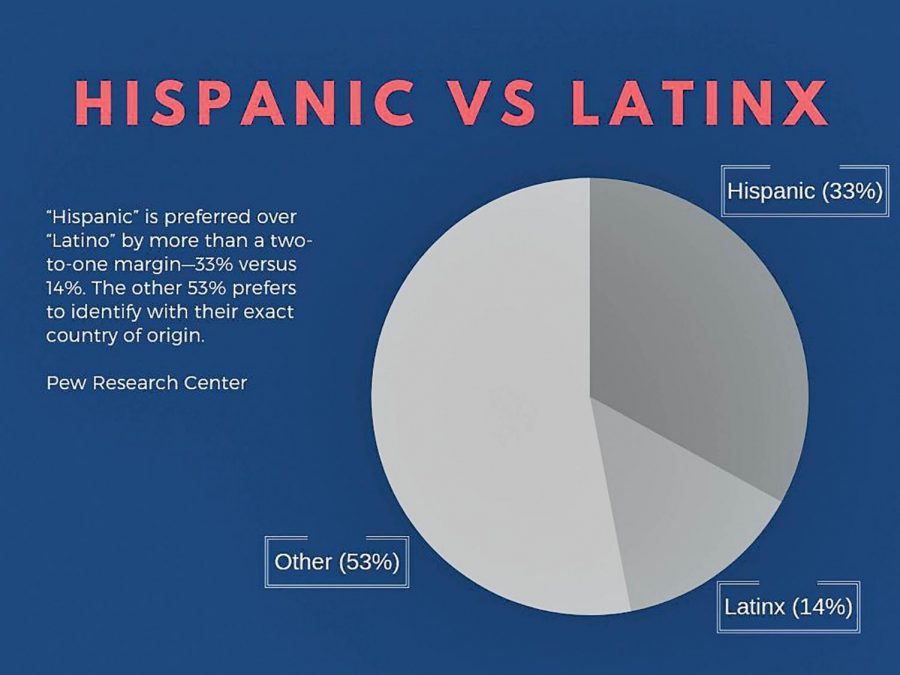Hispanic vs Latinx: Why being culturally conscious is important
Sammy Jo Cienfuegos / Hilltop Views
The estimated total population of Hispanics and Latinxs in the U.S. is 58,846,134.
At a time when identity is so important and ingrained into society, specific distinctions matter more than ever. It’s time that our identities stop getting erased because of someone’s lack of vocabulary. Hispanic does not equal Latinx. It’s not an umbrella term and it’s time people start learning that.
The terms Hispanic and Latinx are often used interchangeably, and while there is some overlap, they mean different things. To put these terms simply, Hispanic is a term that tells you about language, while Latinx is a term that refers to geography.
Hispanic means coming from a Spanish-speaking country. The term first appeared in the 1970s as a way to categorize Spanish-speaking residents. While the term is widely accepted and used, it still promotes Spanish heritage, which is something many people oppose. Some claim that Hispanics celebrate the violent colonization and erasure of indigenous people.
Latinx refers to those coming from Latin America. It includes countries like Argentina, Mexico and Cuba. The term was introduced in the early 2000s as a gender-neutral alternative to the masculine Latino. Latinx is also meant to include those who don’t identify as a binary gender and has been widely accepted by the LGBTQ+ community. Latinx didn’t take off until around 2014.
While the term is accepted by mainstream media, it has also brought in a lot of criticism. Some claim that it corrupts the Spanish language. However, language must evolve as society evolves. Everyone deserves to feel represented.
While both terms have their share of criticism, they are both valid. And while they’re different, they can still overlap. There are a few cases where someone can identify as Latinx and Hispanic. For example, someone who is from Colombia would be considered both because Colombia is in Latin America and is a primarily Spanish-speaking country. Many times, people label us as the language we speak. If we speak Spanish, then we must be Spanish. Spanish is a nationality and only those from Spain should be called that.
Something important to note about the terms Latinx and Hispanic is that they’re not a race; they’re ethnicities. People who identify as Latinx or Hispanic can be from literally any race. The term gives absolutely no information towards finding out a person’s race. Latinx or Hispanic people can be White, Native, Black, Asian, Arab, Romani, etc.
While Latinx and Hispanic don’t always represent all identities and subgroups, they’re still stepping stones in the right direction. Being able to distinguish yourself from the majority is something that feels good and holds a lot of power. Our histories are just as important as the ones told in our history books, and while these labels don’t make up for the lack of representation, they’re small steps in the right direction.

Hey ya'll! My name is Sammy Jo Cienfuegos and I'm one of the two Viewpoints editors. I'm a senior Writing and Rhetoric major, with an emphasis in Creative...












